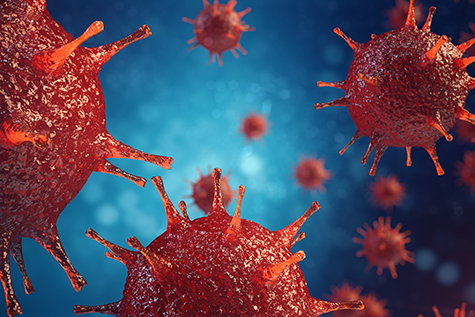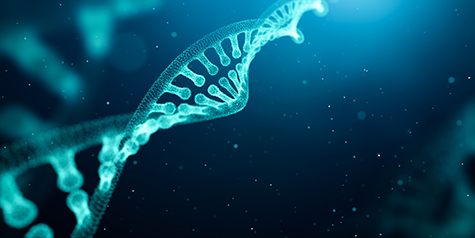FASTING – It’s Expanding Lifespan


For several years, the FoodTrients team attended the American Academy of Anti-Aging Medicine (A4M) Annual World Congress in Las Vegas. And every year we found ourselves even more excited about the scientific and medical evidence presented there around food, fasting, and nutrients, and how we can live longer, healthier lives.
On the opening day of that conference, an entire track of lectures on fasting followed the keynote address from Dr. Valter Longo, director of the Longevity Institute at the University of Southern California (USC) and author of The Longevity Diet, based on his ground-breaking research on a “fasting mimicking” diet. Dr. Longo was also a keynote speaker at the December 2021 conference.
One of the afternoon speakers was Dr. Kurt Hong, professor of Clinical Medicine and Director at the USC Center for Clinical Nutrition, Keck School of Medicine and Davis School of Gerontology, USC. His topic: Fasting and Metabolic Syndrome, Inflammation and Immune Diseases.
What did we learn? Americans eat too much, and that is creating an unprecedented number of health issues. Dr. Hong walked us through a variety of fasting regimens and explained the benefits of each program, but first he gave us the startling facts of chronic disease and healthcare.
Today, people are living longer than ever before. There are currently more than 1 billion people worldwide over 65 years of age. People over 65 will comprise more than 22% of the U.S. population by 2030. According to the CDC (Center for Disease Control):
- Age-associated chronic diseases and conditions are also increasing:
- 80% of older adults have at least one chronic condition
- Chronic diseases cause 7 in 10 U.S. deaths
- Top 5 chronic conditions in people over 65 are:
- Heart disease (32%)
- Cancer (24%)
- Chronic lower respiratory disease (21%)
- Alzheimer’s (13%)
- Diabetes (11%)
The diseases of aging continue to plague us with few “cures” in site. Cancer, aging, obesity and chronic diseases are growing epidemics taking a huge toll on healthcare resources.
- 86% of our nation’s healthcare costs are spent treating people with chronic diseases.
- 70% of ALL Americans are overweight or obese.
- Over 100 million Americans are projected to be diabetic by 2050.
- More than 130 million Americans are affected by chronic diseases, which is 40% of the population.
- 70 million Americans have hypertension with elevated risk for stroke and heart attack.
- 2 million people die annually of cancer worldwide, making it the leading cause of death.
The average lifespan expectancy has increased dramatically in the last 100 years, but healthy lifespan expectancy (“healthspan”) has not increased at the same rate. But how do we increase healthspan?
According to Dr. Hong and other medical and scientific researchers who spoke at the A4M conference, fasting may provide one of the best ways to fight off the diseases of aging. Autophagy (cellular “self cleaning”) is a biological process that plays a key role in your body’s ability to detoxify, repair, and regenerate itself. When you activate your body’s autophagy, you reduce inflammation and slow down the aging process. Unfortunately, autophagy declines with age, and this decline is prominent in heart disease and other chronic diseases.
Why do we age? Here are a few theories of cellular and molecular aging presented in Dr. Hong’s speech:
- Oxidative damage
- Telomeres
- Genetics alterations with aging
- Mitochondrial aging
And other determinants include:
- Inflammatory processes
- Hormonal changes
- Lifestyle/behavioral choices
While food may feed the stomach, fasting “feeds” our cells. Fasting is not right (or safe) for everyone, but are some fasting regimens better than others? Based on the research presented at the A4M conference, Dr. Longo’s Fasting Mimicking Diet appears to have the edge on other fasting methods. Here is a rundown of the options and benefits that researchers have determined so far:
- Prolonged Fasting (PF)
- This involves Zero calories for 2 or more days and drinking only water
- PF protects mice against the adverse effects of chemotherapy and ischemia/reperfusion-mediated toxicity and cancer progression
- It also promotes stem cell-dependent regeneration and immune system rejuvenation in old animals
- Protective effects against aging and disease may partly be mediated by the reduction in IGF-1, glucose, and insulin
There are, however, concerns when it comes to PF:
- It can create electrolyte and nutrient imbalances
- There is often poor compliance (because going without food for days is difficult for many people to do
- Intermittent Fasting (IF)
What are the effects of IF?
- 3 weeks of alternate-day fasting reduces:
- Body weight
- Body fat
- Plasma insulin concentrations
- 2 days a week of 500 calories improves:
- Insulin sensitivity
- Abdominal fat loss
- Blood pressure
In mice, IF helps to prevent or delay myocardial infarction, diabetes, stroke, Alzheimer’s disease, and Parkinson’s disease. That’s exciting news if research can prove the same results in humans.
- Health effects of Time-Restricted Feeding (TRF)
Involves daily fasting intervals ranging from 12 to 20 hours, e.g., fasting from dinner until lunch the following day. There are no guidelines on amount or composition of food intake. In humans, it is associated with:
- Weight loss
- Lower glucose levels
- Lower cholesterol
- The Fasting Mimicking Diet (FMD)
When Dr. Hong’s patients tried Dr. Longo’s Fasting Mimicking program for 3 months (for 5 days each month), he saw improved C-reactive protein and stem cells – both major issues when it comes to the diseases of aging. He also believes the diet can help people with autoimmune diseases and says that research is currently being done on Fasting Mimicking and MS, age-related metabolic diseases, neurologic diseases, cancer and cardiovascular problems.
The Fasting Mimicking program is NOT recommended for people:
- With Type 1 or 2 diabetes
- With heart disease
- Who are pregnant
- Who are underweight
- Over 70 (unless they are healthy)
What is the Fasting Mimicking Diet?
FMDs mimic the beneficial effects of fasting without the challenges. Here’s how it works:
- 3 cycles of 5-day plant-based dietary meal plan each month for three months
- FMDs combine protein restriction, mild intermittent caloric restriction, and very specific ratios of low-glycemic index food
- This combination leads to down-regulation of the body’s key nutrient-sensing pathways, and activate cellular regeneration
Dr. Longo’s research on Cell Metabolism (2015) at the USC Longevity Institute discovered that:
- A periodic diet that mimics fasting promotes multi-system regeneration, enhanced cognitive performance, and “healthspan”
- FMD inhibits major pro-aging genes
- FMD causes fat loss without reducing lean body mass
- Healthy fasting blood glucose levels were maintained and remained 5.9% lower than baseline 5 to 8 days after resuming normal diet
- Periodic FMD cycles help to maintain healthy glucose levels, blood pressure, cholesterol, C-reactive protein, and stem cell mobilization
Here are the amazing results that Dr. Longo’s studies revealed according to our own anti-aging expert advisor, Dr. Mark Rosenberg:
-
- 1. Extended life span
-
- 2. Reduced the incidence of cancer
-
- 3. Boosted the immune system
-
- 4. Decreased inflammation
-
- 5. Decreased bone mineral density loss
-
- 6. Boosted cognitive abilities (thinking, problem solving, memory)
-
- 7. Decreased the IGF-1 hormone, often associated with aging and cancer development
-
- 8. Increased the beneficial IGFBP hormone
-
- 9. Decreased blood sugar levels, belly/trunk fat, and C-reactive protein. These are all dangerous biomarkers/risk factors for the development of diabetes, heart disease, and cancer.
-
- 10. No major side effects were noted and muscle and bone mass were not negatively affected
The bottom line . . .
 Focus on healthy eating patterns across your lifespan:
Focus on healthy eating patterns across your lifespan:
- All foods and beverage choices matter
- Achieve and maintain a healthy weight
- Support nutrient adequacy
- Reduce the risk of age-related chronic disease
- Shift from typical to nutrient-dense foods
“If we can reverse or slow down the process of aging, we can prevent many of these diseases,” says Dr. Hong.






